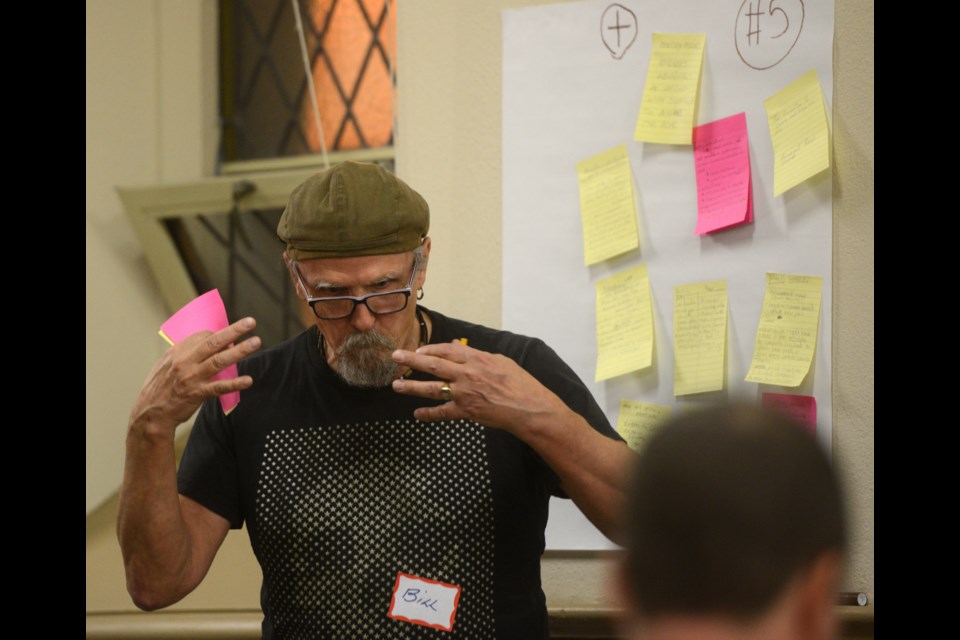The pros and cons of Guelph becoming a 100 per cent renewable energy city were explored Friday night in Guelph.
Organized by the eMERGE Guelph and the University of Guelph's Community Engaged Scholarship Institute, the event drew roughly 80 people to St. George's Church hall.
Largely it was an exchange of ideas and opinions between a group of engaged individuals around what becoming a 100 per cent renewable city might entail and what the positives and negatives of that goal might be.
The audience included six Guelph councillors.
Kirby Calvert, a University of Guelph geography professor whose area of study includes renewable energy cities, said there are currently three municipalities in Canada that have committed to becoming 100 per cent renewable: Victoria and Vancouver, B.C. and Oxford County.
There are many other cities around he world who are committed.
"This is a question I've been thinking about for a little over a decade," said Calvert. "There is a global movement. We would not be alone in the world or Canada."
He said the the spectrum of engagement for a municipality ranges from a philosophical level of political announcements and vision statements up to legally binding targets, something that would not be legally possible in Canada.
In between are a level where energy strategies and scenarios are developed and, one step higher, a detailed roadmap and action plan, something he said Vancouver is doing.
"Change is happening," Calvert said of the move towards renewable energy.
"If we don't have a plan for this we're not going to be able to take advantage of these opportunities."
He stressed that it is very difficult for a municipality to "go it alone" in trying to achieve the goal. Multi levels of government need to be involved as well as landowners and corporate interests.
There also needs to be incentives for the community at large.
"More importantly you have to get people thinking about what their role may be," Calvert said.
The audience broke up into groups to brainstorm some positive and negative implications of moving towards 100 per cent renewable in Guelph.
The abundance of knowledge in the community on both a social and corporate level, the jobs it could bring, being a role model, attracting investment and the fact that Guelph would be at the forefront of a positive environmental change that is going to happen anyway were some of the positives the groups came up with.
Potential drawbacks raised included the capital investment it would take, geography and climate challenges, getting people to "care" and the complexity of achieving the goal.
